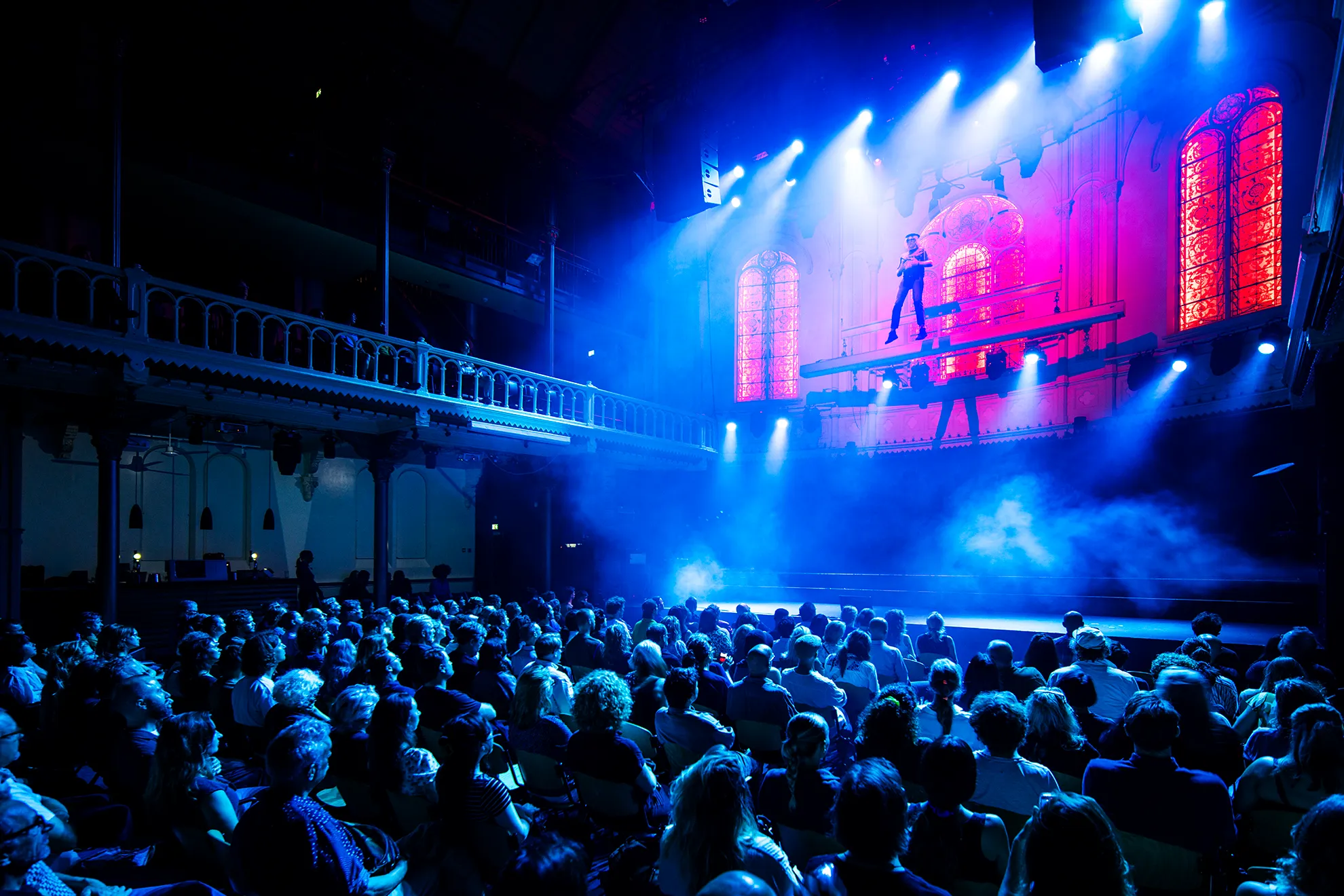In what kind of digital world do we actually want to live? This question is more relevant than ever, especially as we become increasingly aware that we need to regain control - or at least achieve a healthy balance - with technology. This became evident during our Digital Wellness Show on September 2nd at Paradiso in Amsterdam. A packed audience gathered to reflect on the impact of technology on our well-being. The program featured a captivating mix of performances, lectures, and music.

Professor Peter Lunenfeld, a professor of Design Media Arts at UCLA and founder of the Institute for Technology & Aesthetics, provided a historical and global perspective on digital well-being. His insights into the history, origins, and geography of this phenomenon were valuable and remain relevant even after the show.

Rapper Benjamin Fro prompted us to think about who we are under the influence of technology and systems in our modern society with his song “What Is.” His powerful words helped us reflect on the impact of technology on ourselves.

Anthropologist Roanne van Voorst illustrated the influence of AI on our daily lives with various examples, from robot vacuum cleaners to friendship-apps and coaches. She emphasized that we often fear AI becoming too human, while the real danger lies in humans behaving increasingly like robots.

A highlight of the evening was the spectacular act by artist Geoffrey Lillemon. He ascended into the air and led the audience in a breathing exercise, aiming to bring body and mind into harmony. This experience set the tone for the rest of the evening.

Next, Portuguese designer and author Silvio Lorusso presented ten years of work and reflections on internet-related discomforts. With humor, he addressed a variety of topics, such as vibrating smartphone icons and left-handed mouse cursors. His critical view of digital culture resonated with the audience.

The attention then shifted to mixed media artist Luna Maurer, winner of the Golden Calf - a well-known prestigious film award in the Netherlands. In her performance “Emoticons Don’t Have Wrinkles,” she advocated for more friction in the digital culture.

Another notable moment was the performance and real-time therapy session for a 'mentally unstable AI' by dance and theater maker Marina Orlova. Her ironic take on technology and health made the complexities of this topic tangible.

Marleen Stikker, director of Waag, shared her critical perspective on technology and society. She pointed out that technology increasingly dictates our future, but the question remains: who has and takes control? While technology offers opportunities, there are also risks, such as addiction and manipulation, that we must not overlook.

The evening was followed by Stefan van der Stigchel, a professor of cognitive psychology at Utrecht University. He provided a clear explanation of what attention is and how it actually works. As the head of the AttentionLab research group, he studies how attention and visual consciousness shape our view of the world.
The conference was expertly moderated by Koert van Mensvoort, who ensured that the discussions flowed smoothly.
Finally, we would like to express our gratitude to the AFK for supporting the Digital Wellness Show, which was organized in collaboration with Paradiso. It was an inspiring evening that encouraged us all to reflect on the role of technology in our lives and how we can shape it for a healthier future.


Comments (0)
Share your thoughts and join the technology debate!
No comments yet
Be the first to share your thoughts!